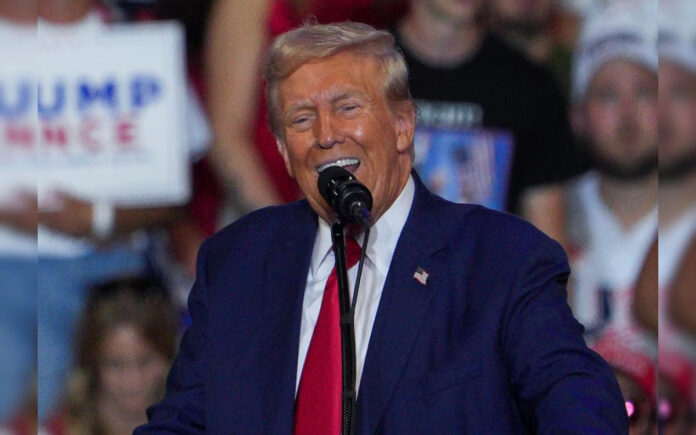New York: A New York judge has postponed former President Donald Trump’s sentencing in his hush money case until after the November 5 election. The delay aims to prevent any appearance of political bias, according to the judge’s ruling on Friday.
Trump, the Republican presidential nominee, was initially set to be sentenced on September 18. His legal team requested a delay in August, arguing that an earlier sentencing would interfere with the election. Manhattan District Attorney Alvin Bragg, who filed the charges against Trump, is a Democrat.
Judge Juan Merchan has rescheduled the sentencing to November 26, unless the case is dismissed beforehand. “The imposition of sentence will be adjourned to avoid any appearance—however unwarranted—that the proceeding has been affected by or seeks to affect the approaching Presidential election in which the Defendant is a candidate,” Merchan wrote. “The Court is a fair, impartial, and apolitical institution.”
Trump expressed his gratitude on his Truth Social platform, noting that the sentencing will only proceed if Merchan denies his ongoing motion to overturn the jury’s verdict. “This case should be rightfully terminated as we prepare for the Most Important Election in the History of our Country,” Trump stated.
Trump was convicted on May 30 on 34 felony counts of falsifying business records to conceal a $130,000 payment to porn star Stormy Daniels, who alleges a decade-old sexual encounter with Trump. Trump denies the allegation and has pledged to appeal the verdict post-sentencing.
A spokesperson for Bragg’s office affirmed readiness for the new sentencing date set by the court.
Judge Merchan’s ruling will address Trump’s request to overturn the conviction in light of the U.S. Supreme Court’s recent decision on presidential immunity, scheduled for November 12. The Supreme Court’s 6-3 ruling clarified that presidents cannot be prosecuted for official acts and such acts cannot influence criminal cases involving unofficial conduct. Prosecutors argue that Trump’s case concerns personal conduct, not official actions, and did not advocate for an earlier sentencing date.
Also Read | China Ends Foreign Adoptions After Three Decades
According to retired New York judge George Grasso, Bragg’s decision to delay sentencing until after the election may be an attempt to avoid accusations of political interference. “He’s probably appropriately sensitive to opening himself up to charges from Trump and Trump supporters that he’s being too political,” Grasso said. “He threaded the needle.”
Falsifying business records carries a maximum sentence of four years in prison, though fines or probation are more typical. If Trump were to win the presidency, he could potentially influence federal election interference charges but not those at the state level, including the New York case or any related to Georgia.



